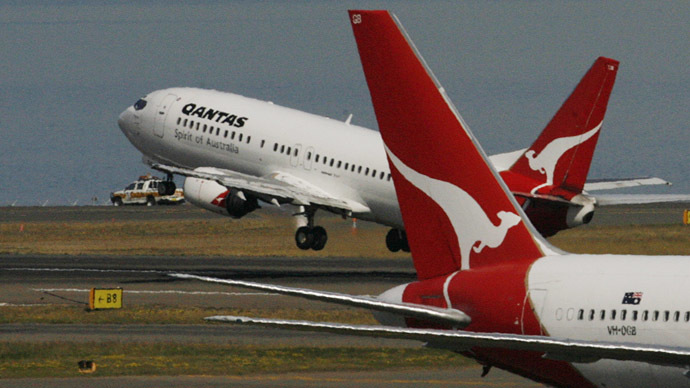Passengers, crew on Australian aircraft exposed to toxic fumes – report

The passengers and crew of Australian planes have been exposed to potentially toxic fumes on over 1,000 occasions, a report reveals. Former cabin crew are now taking legal action, alleging the exposure is linked to cancers and neurological disorders.
The Australian Transport Safety Bureau (ATSB) has released a
report on aircraft safety documenting over
1,000 cases of exposure to toxic fumes on Australian flights over
the past five years. While the report says that most of the cases
when members of the cabin crew or passengers were affected were
of “minor consequence,” there were 11 minor injuries and
“one incapacitation.”
Reports of fumes filling the cabin ranged from minor smells to
cases of smoke from aircraft engine fuel seeping into the plane.
The document said most of the fumes could be attributed to
aircraft system issues “relating to failure or malfunction of
electrical and auxiliary power unit (APU) systems.” The ATSB
concludes that the risk of an incident occurring were rare and
effective measures were deployed in most cases to combat the
fumes.
However, former cabin crew members have complained, claiming
prolonged exposure to the fumes has caused chronic health
problems ranging from neurological disorders to cancer. They
claim that they were never warned of the potential impact on
their long-term health.
Former pilot Susan Michaelis told news.com.au that she collapsed
in the cockpit of a BAe146 aircraft because of repeated exposure
to fumes from heated jet oil.
“Sitting in an unhealthy environment and being exposed to
chemicals every day made me sick,” she said. “There is a
pattern of chronic ill-health … and it needs to be looked at
further.”
Michaelis now heads research at the Global Cabin Air Quality
Executive. Her work has uncovered cases of cancer and
neurological problems among crew members of Australian planes.
The BAe146 came up as one of the worst aircraft for fumes
according to the research from the ATSB. Australian airline
Qantas responded to the allegations, saying it was phasing out
the use of these aircraft and fume incidents were “incredibly
rare.”
“Extensive global research has been undertaken into cabin air
quality and there is no evidence linking fume events with
long-term health effects for passengers or crew,” Qantas
medical services director Dr. Ian Hosegood said to news.com.au.
Some former crew members are now pursuing legal action against
the Australian government over the conditions onboard planes.
Brett Vollus, a former flight attendant, is determined to prove
the link between pesticides sprayed on international flights and
his Parkinson’s disease.
“There has to be a link between these brain tumors and
cancers among flight crew and the toxic environment that we are
working in,” he told news.com.au. “More research needs
to be done.”














